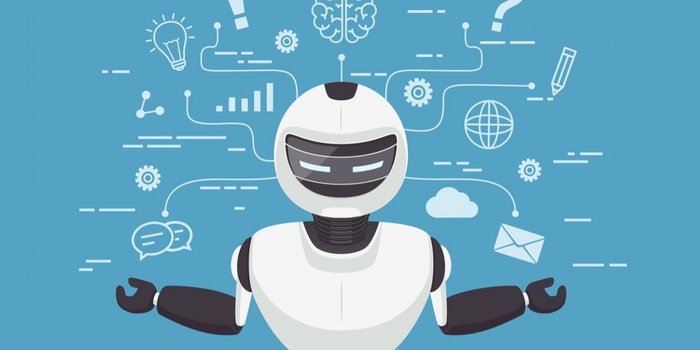The AI field in 2018 looks a lot like the Sharper Image catalog. It's full of products that are built just because we can build them, and because they're marketable.
Do you really need this bacon toaster? Do you really think this 3D drawing pen will bring out your inner artist?
Like these products, too much AI on the market today is a one-off novelty. No one has done market research to determine the overall address market for bacon toasters. They don't have focus groups of possible clients. They just create a novelty that can make people laugh and has enough utility to convince a few people to buy it with cash . If this doesn't sound like a lot of AI on sale now , I don't know what's going to happen ?

Amid the industry's half-hearted defenses, AI experts remind us that "it's still early." Others explained that the first wave of enterprise AI was "doomed to fail," and that
somehow both were doomed and acceptable. Given its good understanding and potential impact on society, shouldn't AI be held to a higher standard?
Related reading: 5 strategies for machine learning, have you used it?
So smart clients ask: Why does AI have so much hedging and so little liability?
Researchers run amok
I love visiting research labs like the next nerd, but we need to pay attention to researcher-led AI implementations in business scenarios. Due to the huge talent shortage in artificial intelligence, many companies are scouring global universities for PhDs. Facebook had an AI research team of more than 100 researchers, a luxury to claim at other tech companies, but the Facebook Messenger AI team was shut down shortly after hitting a 70 percent failure rate.
Despite the massive investment of funding and academic talent, some may argue that the platform has failed, but we need to be honest with ourselves: fail because of it.
Money and talent issues. They are important. However, the failure rates we encounter in this industry look more like scientific research than IT implementation. Nature recently reported: "More than 70 percent of researchers tried and failed to reproduce another scientist's experiments, and more than half failed to reproduce their own experiments."
The AI industry has brought in academic research scientists, and the result is a lot of experimentation with clients' businesses. Don't get me wrong - I value research, experimentation, and even failure as a tech entrepreneur. But any entrepreneur would agree that it is unacceptable for the client to take all the risk.

At the same time, researchers must focus on the technology and its inner workings. They are not trained, and they are often not good at it, to ensure the best business outcomes. Think about it, AI failure is not the result of a shortage of AI PhDs; it's a result of their team's lack of business analysts and customer success experts.
If you are far ahead of your head in terms of business acumen, then you also hedge.
Researchers are an important part of the AI ecosystem. But thousands of developers and technologists have thrived over the past decade. If you've ever spent time on sites like Stack Exchange or Hacker News, you'll find a community of talented technologists discussing the merits of new technologies, debating the merits of programming languages and tools, platforms and standards. This is how the technology industry moves forward one step at a time. Since AI is still in a relatively new phase, discussions and debates around all of these topics are at a climax. As an industry, we are still working to establish best practices and standards, and this process requires our technology leaders to pay attention to the technology itself.

The good news is that we've been doing this for decades -- that's how we're addressing digital transformation and transition to cloud computing, then mobile transition, and now we're doing it for AI.
The bad news is that most people in the industry spend very little time and effort understanding their customers and their business needs. Silicon Valley has always been committed to building glamorous new technologies that failed in the first place because they didn't have a product/market fit. Building the best technology is not the same thing as building the best technology for my business.
This exact phenomenon is what we're seeing now in AI, at least for developers who aren't obsessed with customers.
Client, client, client.
The next big breakthrough in artificial intelligence won't come from a Stanford lab. This doesn't happen in the client's code. This will happen in HR, where the recruiting team will develop a strategy to hire merchants who have the ability to bridge the gap between business technology and business outcomes.
We need to focus on the business of AI buyers, and we need to focus on their customers. AI is not a one-off technology - it affects the entire value chain from start to finish. These technologies need to adapt to the business, not the other way around.
Since "digital transformation", we've been teaching businesses how their IT should work. This won't work anymore. AI is too much for a business, touching too many processes for any sane manager to tell them how to run their business.
We need merchants who are good at listening to their customers and their customers' customers - because that's where AI has a real impact.
Once again, the customer is always right, thanks to AI’s ability to transform businesses.
For more artificial intelligence, please pay attention to the WeChat public account: Zhide IoT Technology or Weibo @zhide IoT Technology.
Part of this article was compiled from Ben Lamm 's article on the Entrepreneur website.


